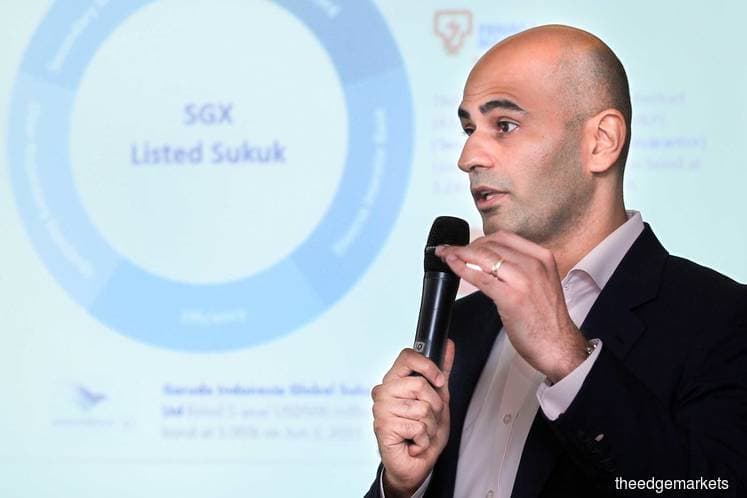
KUALA LUMPUR (July 26): Global investors are increasingly drawn to Asian bond markets given the lower investment risks but cross-border connectivity remains a challenge, according to an industry expert.
"Global investors are increasingly, getting more comfortable in Asia. Asian markets are becoming more attractive to global investors versus other key emerging markets where market-perceived risks are higher," Rehan Ahmed, head of fixed income trading at Singapore Exchange (SGX), told the press today during a discussion on Asia's growing debt issuance market.
The trend shift in the bond markets were particularly notable during the recent emerging market bond sell-offs, he said, which may have been exacerbated due to headline risks in markets such as Brazil and Turkey.
In Brazil, upcoming election uncertainties, coupled with the central bank's slashing of its economic growth projection to 1.6% but raising the inflation forecast to 4.2%, from 3.8% in March, as the economy deteriorated in the second quarter, put investors off.
Turkey, too, saw its consumer price inflation surge to 12.2%, its highest level in six months, ahead of a landmark presidential election in June, in which Recep Tayyip Erdogan was re-elected.
In the secondary market, which is a natural extension to bond listings, Rehan observed not just increased cross-border flow in recent years, but increased interests among Malaysian investors towards international sukuk listed on the Gulf Cooperation Council (GCC) markets, which are Saudi Arabia, Kuwait, the United Arab Emirates, Qatar, Bahrain, and Oman.
"Connecting Malaysian banks and fund managers to the global investor base can be challenging for both sides, given geography and exposure to the local liquidity pool," said Rehan.
He added that it is important to see technology and cross-border connectivity as solutions to building a trading community that connects Malaysia-based investors (and those in the broader region), with their global counterparts including GCC-based dealers.
"We realise connectivity is an issue, which is why SGX Bond-Trading (SGX-BT) is a general counterparty that stands in the middle of trade," he said. SGX-BT operates as a general counterparty on its platform dubbed Bond Pro, which is wholly owned by the SGX.
As opposed to the traditional channel for sources of liquidity, the general counterparty helps bridge investors across its trading members in countries like Singapore, Malaysia, Hong Kong, Taiwan, Indonesia, the Philippines, UK, and Switzerland.
To date, there have been more than 3,100 debt securities listed on the SGX by 950 issues from 47 countries, with more than US$1 trillion (RM4.06 trillion) outstanding amount in 19 different currencies, making it Asia's largest debt securities listing hub.
Singapore is also an international sukuk listing hub for bonds of Khazanah Nasional Bhd, Axiata Group Bhd, Tenaga Nasional Bhd, and Sime Darby Global Bhd, amongst others.